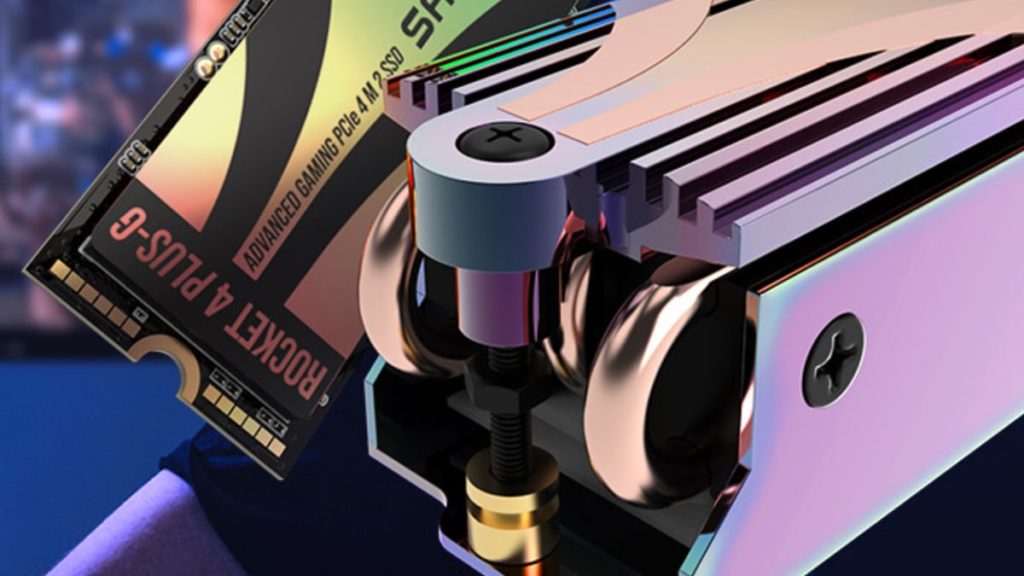
Sabrent has expanded its lineup of Rocket-branded SSDs with new options aimed at gamers.
Now available for pre-order, Sabrent’s Rocket 4 Plus G is a “state-of-the-art” PCIe Gen 4 M.2 NVMe SSD that counts DirectStorage, content creation, high capacity, and “downright lethal 7 GB/s+ of bandwidth” among its product features and usage cases. Comprehensive tech specs haven’t been published on its official product page yet, but 1 TB ($169.99), 2 TB ($299.99), and 4 TB ($699.99) SKUs are available, all of which are complemented with a free “gaming heatsink” for those who pre-order (it costs $29.99 separately).
Sabrent’s new Rocket Rocket 4 Plus G SSDs also feature a form of “game-optimized firmware” dubbed O₂ GO, which should ensure greater performance, according to the manufacturer.
At the core of our Rocket 4 Plus G is our newest O₂ GO firmware. It is specially engineered to elevate our cutting-edge hardware to all-new levels. Sustain high levels of performance throughout your long gaming session, without ever missing a beat.

The warranty tab on Sabrent’s Rocket Rocket 4 Plus G product page can confirm that these drives are backed by a two-year warranty, which can be extended to five years with registration.
Sabrent’s other Rocket products include Rocket NVMe SSDs, Rocket NVMe 4.0 SSDs, Rocket Q4 NVMe SSDs, Rocket Q NVMe SSDs, Rocket 4 Plus SSDs, and the Rocket NVMe 2242 SSD, an M.2 2242 PCIe 3.0 NVMe TLC SSD that’s available in capacities of up to 2 TB.
Another Rocket product that Sabrent recently introduced is the Rocket 4 Plus Destroyer 2, a x16 PCIe 4.0 RAID card with eight independent M.2 slots and a Broadcom Gen4 PEX switch for 64 GB of fast storage.
Source: Sabrent
